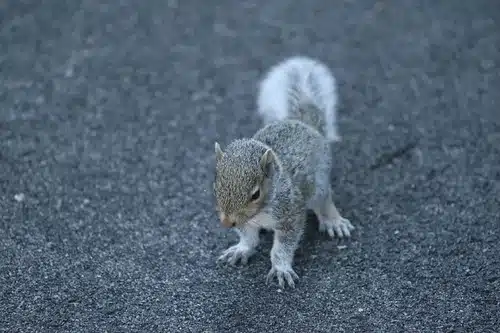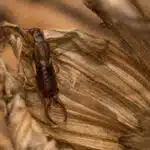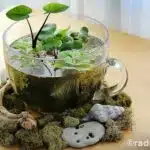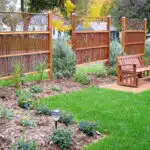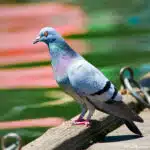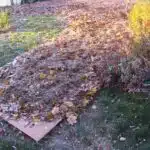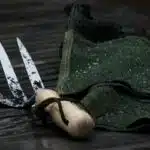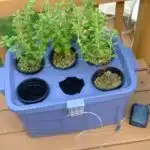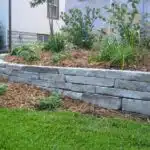Gardening is a cherished pastime for many, but it can become frustrating when wildlife such as squirrels invade and damage your hard work. Squirrels are known to dig up bulbs, chew on fruits and vegetables, and cause overall destruction to gardens. However, there are several techniques that gardeners can implement to keep squirrels away from their gardens.
As a garden wildlife expert, I have seen the damage squirrels can inflict on a garden firsthand. While they may be cute and entertaining to watch, their destructive behavior is not something any gardener wants to deal with. In this article, we will explore various methods that have been proven effective in deterring squirrels from gardens. By implementing these techniques, you can protect your garden and enjoy the fruits of your labor without interference from pesky rodents.
Understanding Squirrel Behavior
Squirrels are fascinating creatures that can be found in many gardens and parks around the world. As garden wildlife experts, it is important for us to understand squirrel behavior so that we can effectively keep them out of our gardens. One important aspect of squirrel behavior is their communication. Squirrels use a variety of vocalizations, body movements, and scent marking to communicate with each other. For example, they may make a chirping sound when they see a potential predator or use their tails to signal danger to others.
Another important aspect of squirrel behavior is their nesting habits. Squirrels typically build their nests, called dreys, high up in trees using leaves, twigs, and other materials. They may also use birdhouses or attic spaces as nesting sites. Squirrels are active during the day and spend much of their time gathering food and storing it for later. This means that they may frequently visit gardens in search of food sources such as nuts, fruits, and vegetables.
Understanding squirrel communication and nesting habits is essential when trying to keep them out of your garden. By knowing how squirrels communicate with each other and where they tend to nest, you can develop effective strategies for deterring them from your garden space. In the next section, we will discuss how to identify signs of squirrel damage in your garden so that you can take action before it’s too late.
Identifying Signs Of Squirrel Damage
Understanding squirrel behavior is an essential step in keeping these critters out of your garden. Squirrels are known for their climbing and jumping abilities, which means they can easily reach any part of your garden. Additionally, squirrels are creatures of habit and tend to return to the same locations repeatedly. This habit can lead to significant damage over time.
Identifying damage caused by squirrels is crucial in preventing further destruction. The most common signs of squirrel damage include holes dug in flower beds or lawn areas, missing bulbs or plants, and partially eaten fruits and vegetables. Additionally, squirrel droppings can be found throughout the area they frequent. Identifying these signs early on will allow you to take action before the damage becomes too severe.
Prevention tips are essential when it comes to keeping squirrels out of your garden. One effective method is using physical barriers such as netting or fencing around vulnerable areas. Another option is planting deterrents such as mint, marigolds, or garlic around your garden perimeter. Additionally, removing any food sources like bird feeders or pet food bowls from the area will discourage squirrels from visiting your garden altogether.
Transition: While prevention tips like planting deterrents can work well in some cases, utilizing physical barriers may be necessary for more significant protection against persistent squirrels.
Using Physical Barriers
Physical barriers are highly effective in keeping squirrels out of your garden. These barriers can be made from a variety of materials, including netting, wire mesh, and plastic fencing. DIY solutions are available for those who prefer to do it themselves, while professional services are also available for those who require higher quality and more robust protection.
Netting is often used to protect fruit trees and bushes from squirrels. Netting should be hung over the tree or bush so that squirrels cannot access it. The holes in the netting should be small enough so that squirrels cannot squeeze through them. Wire mesh can also be used to protect gardens from squirrels. The mesh should be buried at least six inches deep around the perimeter of the garden to prevent squirrels from burrowing underneath it.
Plastic fencing is another option for protecting your garden from squirrels. This type of fencing can be easily installed by homeowners and comes in various heights and colors to match your garden’s aesthetic. However, it may not provide as much protection as other physical barriers since squirrels can chew through plastic easily. Professional services may be required if you have a larger garden or need stronger protection against wildlife intrusion.
Moving forward, installing fencing is another effective way to keep squirrels out of your garden. This method involves erecting a fence around your garden with small openings or mesh that squirrels cannot get through. It is important to make sure that the fence is high enough so that squirrels cannot jump over it or climb up its sides. There are many different types of fencing available for gardening purposes, including wood, metal, and vinyl options that can withstand harsh weather conditions and wildlife damage without requiring frequent replacement or maintenance.
Installing Fencing
Although physical barriers can be effective in keeping squirrels out of your garden, they are not always practical or aesthetically pleasing. If you don’t want to ruin the look of your garden with chicken wire or netting, consider installing a fence. Fencing is one of the most effective ways to keep squirrels out of your garden, and it also has the added benefit of being a long-term solution.
DIY fencing ideas can be found online, but keep in mind that professional installation may be necessary for larger gardens or more complex designs. The pros and cons of professional installation should be weighed carefully before making a decision. While it may be more expensive upfront, professional installation can save time and ensure that the fence is installed properly. DIY fencing projects can be rewarding, but they require a significant investment of time and effort.
When considering fencing options, it’s important to choose a design that is squirrel-proof. This means selecting materials that are sturdy enough to withstand chewing and digging attempts by squirrels. Adding an electric fence or deterrents like motion-activated sprinklers can also increase the effectiveness of your fence. With the right design and materials, a well-installed fence can provide years of protection for your garden against pesky squirrels.
Moving on from physical barriers and fencing, creating a squirrel-proof netting system is another option for keeping squirrels out of your garden. By using fine mesh netting over plants or around trees, you can prevent squirrels from accessing food sources without obstructing the view of your garden or ruining its aesthetics. In the next section, we will explore how to create an effective squirrel-proof netting system for your garden.
Creating A Squirrel-Proof Netting System
Squirrel-proofing your garden can be a challenging task, but it is not impossible. One effective solution is to create a DIY netting system that will help keep squirrels out of your garden. This can be done using basic materials such as PVC pipes, metal stakes, and bird netting.
To begin the DIY netting design, start by measuring the perimeter of your garden and determining the height of the netting needed. Next, install PVC pipes along the perimeter of your garden and attach metal stakes at regular intervals to support the netting. Once installed, drape bird netting over the structure and secure it in place with zip ties or clips. It is important to ensure that there are no gaps or openings in the netting that squirrels can access.
Alternatively, if you do not have time to create a DIY netting system, pre-made squirrel-proof netting is available for purchase online or at your local gardening store. These nets are designed specifically to keep squirrels out of gardens and are made from durable materials that withstand harsh outdoor conditions.
Creating a squirrel-proof netting system is an effective way to protect your garden from pesky squirrels. However, there are other methods that can be used in conjunction with this strategy such as growing squirrel-repelling plants. These plants emit odors that deter squirrels from entering your garden space and can be a natural solution to keeping these critters away from your prized plants.
Growing Squirrel-Repelling Plants
One way to keep squirrels out of your garden is by growing squirrel-repelling plants. Companion planting is a technique that involves planting different crops together in order to boost their growth and health. In this case, you can plant herbs and other plants that squirrels dislike near the crops they are fond of eating.
Herbal remedies have been used for centuries as natural pest repellents. Some of these plants have strong scents that irritate or confuse squirrels, making them less likely to venture into your garden. Examples of such plants include lavender, mint, and rosemary. These can be planted alongside vegetables such as tomatoes and peppers.
When choosing which plants to grow in your garden for squirrel-repelling purposes, consider their effectiveness as well as their compatibility with the other crops you want to grow. Some plants may also attract beneficial insects that can help keep pests away from your garden. By using companion planting and incorporating herbal remedies, you can create a natural barrier against squirrels while maintaining a healthy and diverse ecosystem in your garden.
Using Squirrel-Repelling Scents
- Squirrel-repelling scents are an effective and natural method of discouraging squirrels from entering a garden environment.
- Potential scents used to repel squirrels include cayenne pepper, garlic, and predator urine.
- The benefits of using scents to repel squirrels include cost-effectiveness, minimal environmental impact, and easy application.
- To use scents for squirrel-repelling, it is necessary to create a barrier of scent around the garden.
- This can be achieved by sprinkling the scent of choice around the perimeter of the garden, as well as applying it directly to plants or food sources.
- Additionally, the scent can be applied to objects or containers used to store food, such as bird feeders or compost bins.
Types Of Scents
The use of scents is a popular method for repelling squirrels from gardens. DIY scent recipes have gained popularity among gardeners who prefer natural remedies that are safe for their plants and the environment. Some of the most effective DIY squirrel-repelling scents include cayenne pepper, garlic, peppermint oil, and vinegar. These scents are known to irritate squirrels’ sense of smell and taste, making it unpleasant for them to linger in the garden.
Commercial repellents are also available in the market, offering a range of options that cater to different preferences and budgets. Some of these repellents rely on natural ingredients like essential oils while others use chemical compounds like naphthalene or thiram. While commercial repellents can be effective at keeping squirrels away from your garden, they may come with some negative consequences such as harming non-target species or leaving behind unwanted residue.
When choosing a scent-based squirrel repellent, it’s important to consider your individual needs and preferences. DIY recipes offer an affordable and eco-friendly option for those who prefer natural remedies while commercial products provide a more convenient and potentially more effective solution. Whichever option you choose, make sure to follow the instructions carefully and monitor its effectiveness over time to ensure that your garden stays free from unwanted visitors.
Benefits Of Scents
As a garden wildlife expert, using scents as a squirrel repellent is an effective way to keep your garden free from these pesky critters. The benefits of using scents as a deterrent are numerous, particularly when you opt for natural deterrents like DIY scent recipes. These scents work by irritating the squirrels’ sense of smell and taste, making it unbearable for them to stay in your garden.
One of the main benefits of using scent-based squirrel repellents is that they are eco-friendly and do not harm the environment or other animals. Unlike conventional methods of pest control that rely on harsh chemicals, DIY scent recipes use everyday household items like cayenne pepper, garlic, peppermint oil, and vinegar. These natural ingredients are safe for plants, pets, and humans while effectively deterring squirrels from entering your garden.
Another benefit of using scent-based squirrel repellents is that they offer a cost-effective solution to pest control. Commercial repellents can be expensive and may require frequent application to maintain their effectiveness. Conversely, DIY scent recipes are affordable and easy to make at home with readily available ingredients. By incorporating these natural deterrents into your gardening routine, you can save money while keeping squirrels at bay.
How To Use Scents
When it comes to using scents as a squirrel repellent, there are several effective DIY scent recipes that you can easily make at home. These natural solutions are an eco-friendly and cost-effective way to keep squirrels out of your garden. To use scents as a deterrent, it is important to understand the proper methods for application.
One way to use DIY scent recipes is by creating a spray solution that can be applied directly to your plants or around the perimeter of your garden. To make this spray, mix water with essential oils like peppermint or garlic and add in a small amount of cayenne pepper for added effectiveness. Shake well and apply liberally to areas where squirrels are known to frequent.
Another way to use scents as a squirrel repellent is by incorporating these natural deterrents into your gardening routine. For instance, planting herbs like mint or lavender not only adds beauty and fragrance to your garden but also helps repel squirrels naturally. Additionally, placing cloves of garlic or cotton balls soaked in peppermint oil around your garden can help deter these pesky critters without using harsh chemicals found in commercial scent products. By implementing these simple steps, you can keep squirrels out of your garden while maintaining an eco-friendly and sustainable approach.
Applying Repellent Sprays
Applying repellent sprays is a common method used to keep squirrels away from gardens. These sprays work by emitting an odor or taste that is unpleasant to the squirrels, causing them to avoid the area. It is important to note that these sprays can have an environmental impact and should be used with caution.
When choosing a repellent spray, consider its long term effectiveness and application frequency. Some sprays may only last for a few days, while others can provide protection for up to several weeks. Additionally, some sprays may need to be reapplied after rainfall or heavy watering. It’s important to read the label carefully and follow the manufacturer’s instructions for best results.
Cost effectiveness is also an important factor when choosing a repellent spray. While some products may seem expensive upfront, they could save money in the long run if they are effective at keeping squirrels away from your garden. Consider purchasing larger quantities or finding deals on bulk orders to save money in the long term.
When using repellent sprays, it’s important to remember that they are not a guaranteed solution and may not work for all situations. In the next section, we will explore alternative methods for keeping squirrels out of your garden by providing them with alternative food sources.
Providing Alternative Food Sources
Imagine you are hosting a dinner party, and you have invited all of your friends. As the host, it is your responsibility to provide food and drinks for everyone. However, one of your friends has a severe nut allergy, which means they cannot eat anything with nuts in it. To accommodate them, you decide to create a separate table with alternative snacks that they can safely consume. The same principle applies when trying to keep squirrels out of your garden.
One way to discourage squirrels from eating your plants is to provide alternative food sources for them elsewhere. Feeding stations are an excellent option as they allow squirrels to feed without disturbing your garden’s plants. Place the feeding stations in an area away from your garden so that the squirrels will be inclined to eat there instead of in your garden. Seed blocks are another option that provides a long-lasting source of food for squirrels.
By providing alternative food sources, you can divert squirrels’ attention away from your precious plants while ensuring they still have access to food. This method allows for a peaceful coexistence between humans and wildlife in our gardens. In the next section, we will explore another technique to deter squirrels from entering our gardens – utilizing ultrasonic devices.
Utilizing Ultrasonic Devices
Providing alternative food sources is a common method to keep squirrels out of your garden. However, the effectiveness debate on this topic still lingers. Some experts believe that providing alternative food sources can actually attract more squirrels to your garden, while others argue that it can deter them from damaging your plants. In reality, the effectiveness of this method varies depending on factors such as the type of food provided and the availability of natural food sources in the area.
Another popular method for keeping squirrels away from your garden is utilizing ultrasonic devices. These devices emit high-frequency sound waves that are unpleasant to squirrels, causing them to leave the area. Ultrasonic devices are relatively affordable and easy to install, making them a convenient option for many homeowners. However, their effectiveness is also subject to debate, with some experts claiming that they may not work effectively on older or deaf squirrels.
When considering various methods for keeping squirrels out of your garden, cost comparison is also an important factor to consider. Providing alternative food sources can be a cost-effective solution compared to more expensive options such as installing fences or using chemical repellents. In contrast, ultrasonic devices may require additional maintenance costs or replacement batteries over time. Ultimately, choosing the most effective and cost-efficient method will depend on individual preferences and specific needs in your garden.
Trapping and relocating squirrels is another potential solution for those struggling with persistent squirrel damage in their garden. However, this method should be approached with caution as it may be illegal in certain areas and could harm both the squirrel and other wildlife populations if not done properly. It is important to do thorough research and seek professional guidance before proceeding with trapping and relocating methods.
Trapping And Relocating Squirrels
Trapping and relocating squirrels is one option to consider when attempting to keep them out of your garden. However, it is important to take ethical considerations into account before proceeding with this method. Squirrels are intelligent animals that form strong social bonds, and separating them from their families can cause stress and harm. As such, it is important to ensure that any trapping and relocation methods are humane, to minimize distress for the squirrels.
Legal restrictions may also apply when it comes to trapping and relocating squirrels. It is always best to check with your local animal control services or wildlife authorities before proceeding with any trapping or relocation efforts. They can provide guidance on the appropriate techniques to use, as well as any permits or licenses that may be required.
If you do decide to trap and relocate squirrels, there are several key steps you should follow:
- Choose a live trap that is appropriate for capturing squirrels.
- Bait the trap with a food source that will attract the squirrel.
- Check the traps regularly to ensure that any captured squirrels are not left in there for too long.
- Release the squirrel at least five miles away from your property in a suitable habitat where they can thrive.
In summary, trapping and relocating squirrels can be an effective way of keeping them out of your garden. However, it is important to take ethical considerations into account and ensure that all techniques used are humane. Additionally, legal restrictions may apply, so it’s always best to seek guidance from animal control services or wildlife authorities before proceeding with this method.
Using Natural Predators To Deter Squirrels
Attracting predators is one of the most effective and natural ways to deter squirrels from your garden. Predators such as hawks, owls, and snakes can help control the squirrel population by preying on them. You can attract these predators by providing them with a suitable habitat, such as nesting boxes for birds of prey or rock piles for snakes.
Another natural deterrent that can be effective against squirrels is planting certain types of plants. Squirrels dislike plants with strong scents such as garlic or onion, and those that are prickly like cactus or rose bushes. By incorporating these types of plants into your garden, you can create a barrier that squirrels will avoid.
In addition to attracting predators and planting deterrents, there are other natural methods you can use to keep squirrels out of your garden. For example, you can use repellent sprays made from natural ingredients like peppermint oil or vinegar. Another option is to install physical barriers like fences or netting around your garden area. These methods may require more effort than others but can be effective in deterring not just squirrels but other pests as well.
By using natural predators and deterrents, you can create a more sustainable and balanced ecosystem in your garden while also protecting your crops from damage caused by squirrels. In the next section, we will discuss how cleaning up debris and spills in your garden can also help keep pests away without using harmful chemicals or pesticides.
Cleaning Up Debris And Spills
Clearing clutter and cleaning up spills is a crucial step in maintaining a healthy garden ecosystem. Not only does it prevent the growth of unwanted weeds, but it also keeps pests away from your plants. Remember, squirrels are attracted to debris and fallen fruit, so it’s important to keep your garden clean at all times.
When cleaning up debris, consider composting as an eco-friendly option. Composting is the process of breaking down organic matter into nutrient-rich soil that can be used to nourish your garden. You can create a compost pile by collecting fallen leaves, grass clippings, and vegetable scraps. These materials will decompose over time with the help of microorganisms and earthworms.
Proper waste disposal is another critical aspect of keeping squirrels out of your garden. Be sure to dispose of any food waste or trash in sealed containers to prevent scavengers from accessing them. Additionally, avoid leaving pet food outside for extended periods as this can also attract squirrels and other wildlife. By following these simple composting tips and waste disposal methods, you can maintain a tidy garden environment that is less attractive to squirrels and other pests.
Transition: Now that you have learned about cleaning up debris and spills in your garden, let’s move on to monitoring and maintaining your garden space to ensure its longevity and success.
Monitoring And Maintaining Your Garden
After cleaning up debris and spills, it is essential to monitor and maintain your garden to avoid any potential squirrel problems. Squirrels often target gardens for their fruit, berries, nuts, and vegetables. They can destroy seedlings before they even have a chance to grow into mature plants. Therefore, it’s crucial to take measures that will keep squirrels out of your garden.
One of the most effective ways to control squirrel damage in your garden is by ensuring the soil quality is adequate. Soil quality determines how well plants grow and produce healthy crops. Healthy soil provides the necessary nutrients for plants to grow strong root systems and resist pests and diseases. Some ways to improve soil quality include adding organic matter like compost or manure, reducing tillage, and maintaining proper pH levels.
Crop rotation is another useful practice that you should incorporate into your garden maintenance routine. Crop rotation involves planting different crops in the same area each year. It helps reduce pest pressure by interrupting the life cycle of pests that depend on specific crops for survival. Additionally, crop rotation benefits soil by preventing nutrient depletion from growing the same crop repeatedly in one spot.
In conclusion, finding the best method for keeping squirrels out of your garden requires constant monitoring and maintenance. Incorporating practices such as improving soil quality through organic matter addition and reducing tillage can benefit overall plant health while reducing pest pressure. Additionally, crop rotation can help prevent pest infestation while benefiting soil health by preventing nutrient depletion. By implementing these practices consistently and effectively monitoring your garden’s health, you can successfully keep squirrels away from your precious crops.
Conclusion: Finding The Best Method For Your Garden
Did you know that squirrels can jump up to 8 feet horizontally from one tree branch to another? This amazing statistic highlights just how agile and determined these creatures can be when it comes to accessing garden spaces. As gardeners, we must therefore strive to find the most effective method for keeping squirrels out of our gardens.
Comparing effectiveness is a key consideration when choosing a method. For example, some people swear by using repellent sprays or homemade deterrents such as chili powder or garlic cloves. Others prefer to use physical barriers such as fencing or netting. It’s important to weigh up the pros and cons of each method before deciding which one is best for your garden.
Another important factor to consider is cost vs. convenience. While some methods may be more effective than others, they may also be more expensive or time-consuming to implement. On the other hand, simpler methods such as planting certain types of plants that squirrels dislike may prove less costly but also less reliable in deterring these furry critters.
Ultimately, finding the best method for keeping squirrels out of your garden will depend on a range of factors including your budget, time constraints, and personal preferences. By carefully considering all the available options and weighing up their relative advantages and disadvantages, you can make an informed decision that will help you enjoy a squirrel-free space where you can grow your favorite plants and vegetables without any interruptions!
Conclusion
Squirrels are known to cause significant damage to gardens, but with the right methods, you can keep these critters out. Understanding squirrel behavior and identifying signs of damage is crucial for implementing effective preventative measures. Physical barriers such as fencing and netting systems serve as a useful deterrent, while natural predators like dogs or cats can also help.
Moreover, it’s essential to clean up debris and spills in your garden regularly. Monitoring and maintaining your garden will ensure that any potential entry points for squirrels are sealed off promptly. By using a combination of these techniques, you’ll be able to protect your garden from pesky squirrels effectively.
In conclusion, keeping squirrels out of your garden requires careful planning and consistent effort. With the right tools at your disposal, you can take charge of the situation and prevent further damage to your precious plants. Remember that the best method for your garden may vary depending on various factors such as location, size, and type of plants grown. So take some time to evaluate what works best for you and implement it accordingly.
Image Credits
- “Baby Squirrel” by Twix (featured)

